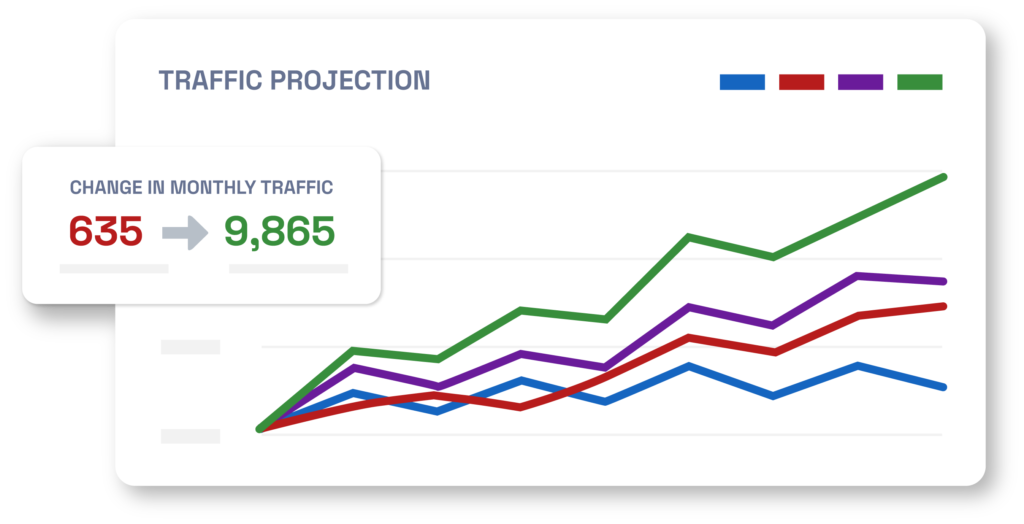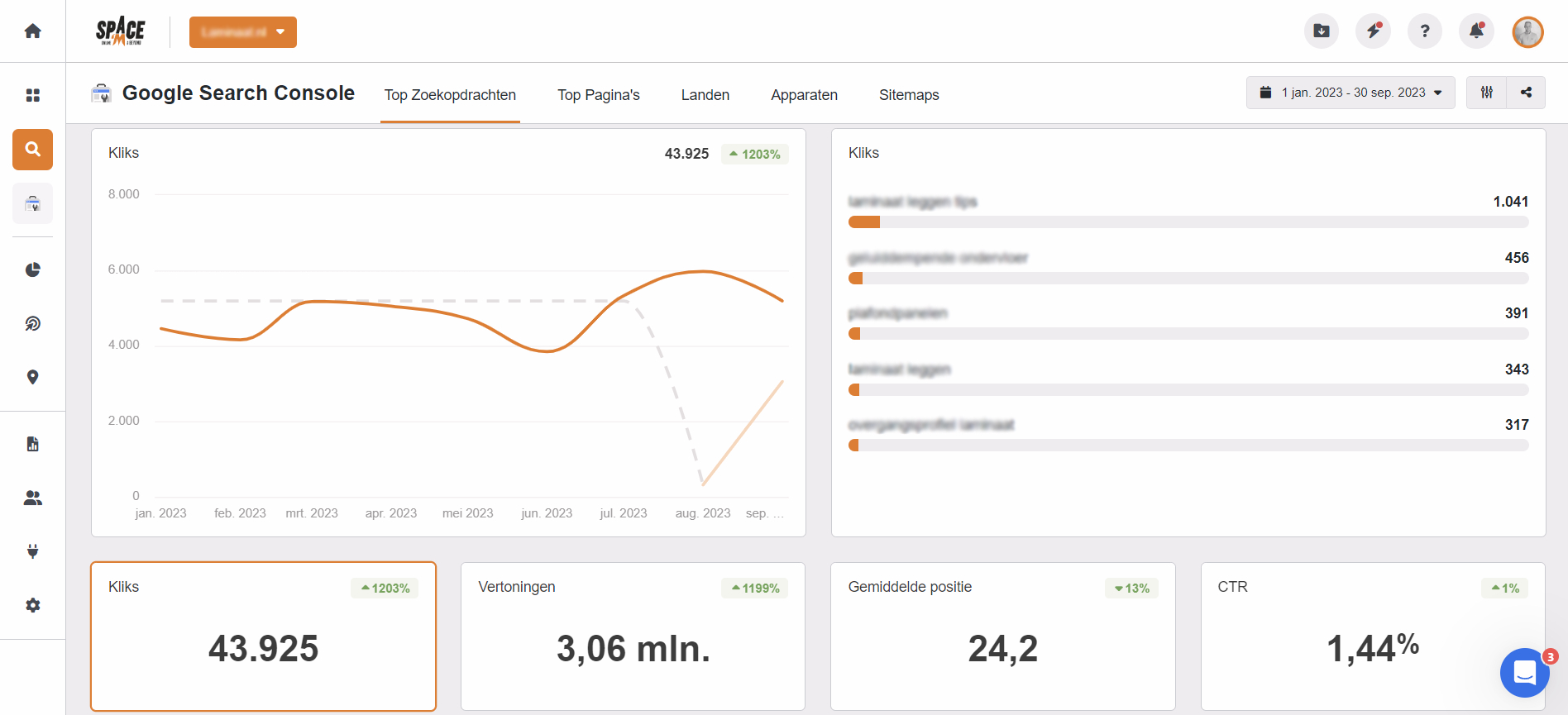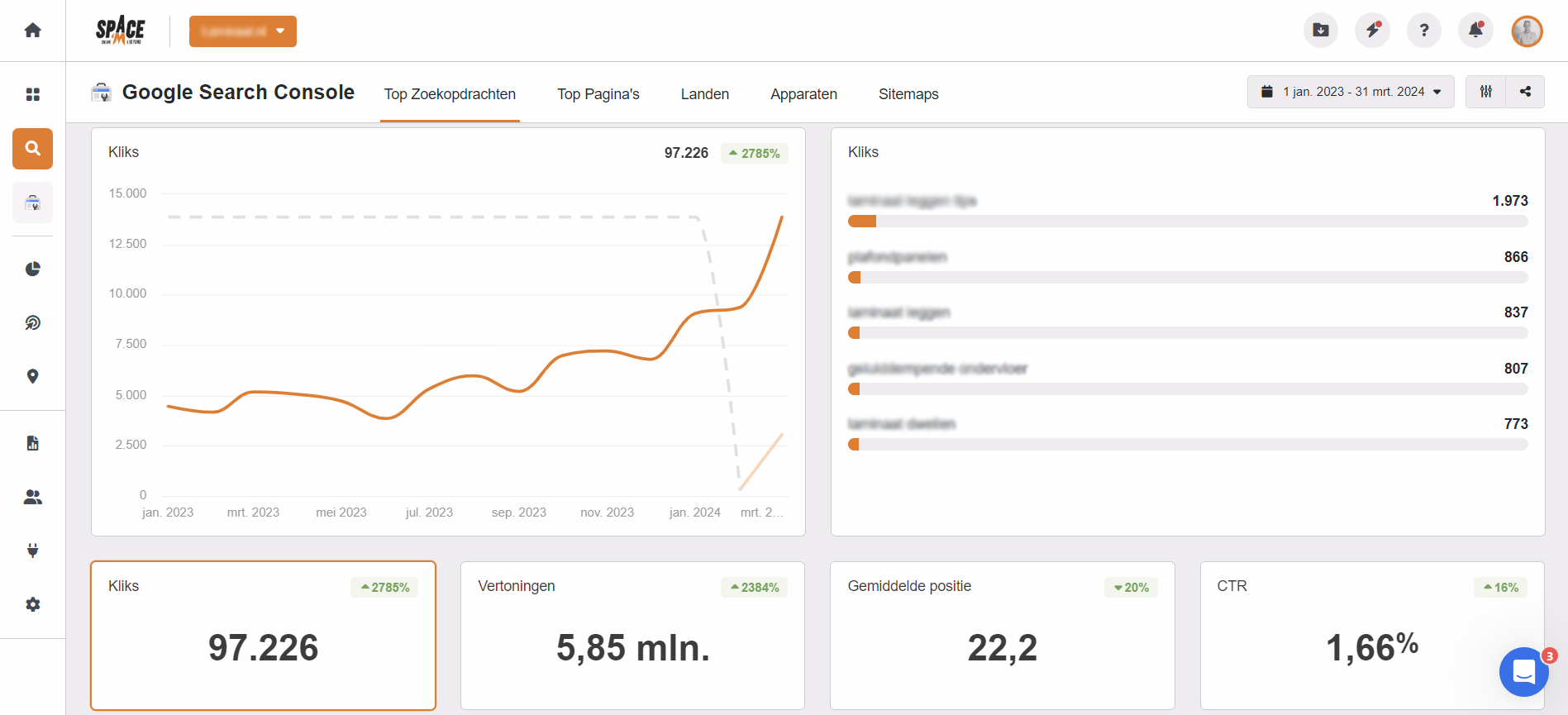Looking to boost your Magento store’s SEO? This guide covers essential strategies that can help improve your search engine rankings. We’ll explore key features, tackle common challenges, and reveal advanced techniques for optimizing your SEO Magento store.
Key Takeaways
- Magento offers robust SEO features out-of-the-box, which include tools for on-page, off-page, and technical SEO, enhancing website health and search engine rankings.
- Common Magento SEO challenges include duplicate content, slow page speed, and complex site architecture, all of which need to be addressed to optimize site performance and improve search engine rankings.
- Advanced Magento SEO practices, such as implementing structured data markup, creating XML and HTML sitemaps, and integrating Google Analytics and AdWords, can significantly enhance SEO performance and improve user experience.
Understanding Magento SEO
Mastering Magento SEO is a priority for online businesses aiming to keep their pages at the top of search engine results in the competitive e-commerce industry. It is a key factor in maintaining online visibility and attracting website traffic. Optimizing a Magento store for SEO is crucial for boosting its visibility and ranking on search engine result pages (SERPs). This involves various strategies and techniques to enhance the store’s online presence. This process includes technical SEO, backlinks, and keyword optimization. By improving the website’s ranking on organic search results, SEO enhances the site’s visibility, attracts more organic traffic, and ultimately, increases sales.
For the over 250,000 active Magento stores, SEO is a priority to stay competitive. Effective SEO practices help search engines understand your site’s content, improving its visibility and rankings. For Magento store owners, implementing proper SEO techniques can significantly boost their store’s presence and drive more traffic.
Why Magento is Ideal for SEO
Magento offers excellent SEO features out-of-the-box, providing tools for on-page, off-page, and technical SEO that enhance website health and improve rankings. This makes Magento a versatile and flexible platform, allowing users to customize and optimize their SEO efforts to fit unique business needs. The platform’s ability to manage multiple brands or storefronts, along with its extensive features, makes it a scalable option for growing businesses looking to enhance their SEO.
E-commerce businesses can streamline their SEO processes and improve search engine rankings by utilizing Magento’s built-in SEO tools. These features, coupled with the platform’s flexibility, enable Magento store owners to implement effective SEO strategies tailored to their specific requirements. This adaptability is crucial for maintaining a competitive edge in the dynamic e-commerce landscape.
Common Magento SEO Challenges
Even with its robust features, Magento SEO presents challenges. Magento store owners often grapple with issues like duplicate content, slow page speed, and complex site architecture. Duplicate content can arise from navigation and improper canonical tags, which can confuse search engine robots and negatively impact search engine rankings. Implementing canonical tags can help distinguish original content from duplicates, preventing these issues.
Also, Magento websites often face the challenge of slow page speed, which affects user experience and the overall search engine ranking. Fast loading speed is crucial, as recommended by Google, to ensure a positive user experience.
Complex site architecture, such as facet navigation, can also lead to SEO challenges by increasing the number of pages to be crawled, creating duplicate content, and making it difficult for search engine bots to index the site. Addressing these challenges is essential for optimizing Magento websites and achieving better SEO performance.
Other articles to take notice of:
Key Magento SEO Features
Magento comes with a range of built-in SEO features that can markedly boost your website’s search engine performance. These include:
- Tools for managing robots.txt files
- Sitemap.xml files
- Multiple redirection methods
- Optimizing meta tags
- Creating SEO-friendly URLs
- Managing image optimization
- Implementing canonical tags
These features are crucial for maintaining a healthy website and improving search engine rankings.
Effective use of these built-in tools can simplify the SEO process for Magento store owners. By leveraging Magento’s robust SEO capabilities, businesses can ensure their websites are optimized for search engines, helping to attract more organic traffic and improve overall SEO performance.
Meta Tags Optimization
Writing captivating meta titles and meta descriptions is essential for enabling search engines to recognize the content of webpages. Here are some tips for optimizing your meta titles and the meta description:
- Meta descriptions should be between 150 to 160 characters.
- Meta titles should be around 55 characters.
- Good meta titles are easy to read, contain important keywords, include calls to action, are unique, and have a length between 30 and 60 characters.
By following these guidelines and optimizing your search engine submission settings, you can enhance your search engine rankings and improve the visibility of your webpages.
Magento 2 allows editing the meta tags and custom title for the Home Page to improve its SEO. It is crucial to optimize meta tags for the home page, as it is usually the first page that customers see. Making a good impression is important in this regard. Extensions like MageDelight’s SEO Pro offer an SEO toolbar to analyze on-page SEO factors and automate meta tag optimization.
SEO-Friendly URLs
SEO-friendly URLs are vital as they benefit both visitors and search engines, aiding both search engine bots and human users in understanding page content for appropriate ranking on SERPs. Building SEO-friendly URLs for product pages can directly impact the volume of traffic visiting a webpage. Enabling URL rewrites in Magento 2 allows optimization by removing unnecessary elements like index.php from URLs. The default option for URL rewrites in Magento 2 is set to ‘Yes’, but users should ensure it remains enabled for better SEO.
Keeping URLs short by avoiding category paths in product URLs is recommended to maintain brevity and clarity. Product URLs in Magento 2 are typically generated based on SKU numbers but can be customized for better SEO. To avoid identical content, use SEO extensions in Magento to create SEO-friendly links for different product items, utilizing the url key feature.
Canonical Tags
In Magento SEO, canonical tags signal the preferred URL structure for content, mitigating the risk of duplicate content issues. A canonical tag is a preferred URL for search engines to crawl, helping prevent duplicate content problems. Magento 2 allows store owners to set canonical tags for categories and paginated results via Stores > Configuration > Catalog > Search Engine Optimization.
By setting up canonical tags, you can ensure that search engines understand which URLs to index, thereby avoiding penalties associated with duplicate content. Implementing a canonical link meta tag is essential for maintaining a clean and reliable website structure, ultimately improving search engine rankings and user experience.
Optimizing Magento Content for SEO
Content optimization is a vital aspect of SEO for Magento websites. An effective content strategy encompasses various elements such as content optimization and keyword research, as well as incorporating blogging to engage and inform the audience. Each of these components plays a crucial role in enhancing the overall impact and visibility of the content. Using well-researched keywords can significantly enhance SEO performance and attract organic traffic. Different types of content, such as product pages, category pages, and CMS pages, need to be optimized to improve search engine performance.
Implementing these strategies will help Magento store owners create engaging and SEO-friendly content, thereby improving their store’s visibility on search engines. Optimization techniques for product pages, category pages, and CMS pages will be discussed in detail to provide a comprehensive approach to content SEO.
Product Pages
To optimize product pages, follow these steps:
- Conduct keyword research using tools like Google AdWords keyword tool and keywordtool.io to find appropriate keywords.
- Incorporate commercial intent long-tail keywords to target users who are interested in making a purchase or seeking information to inform their purchase decision.
- Apart from content, product title tags and meta descriptions are crucial elements for Magento SEO. Ensure they are informative and keyword-rich to attract and engage potential customers.
Magento 2 allows adding alt text for product images directly from the product page settings. It is important to optimize images with appropriate titles, descriptions, and alt-texts because search engine crawlers can’t see images. This ensures that the images are properly indexed for better visibility in search results. Optimizing images can have the added benefit of improving page load times and enhancing the overall user experience. This can have a positive impact on SEO performance. Ensure that the URL for product pages is short, includes keywords, and is easy to understand, making it SEO-friendly and better for user navigation.
Category Pages
In Magento 2, meta descriptions for categories can be edited at the store view level and further customized for individual categories. Automatically redirecting URLs in Magento helps to redirect visitors and search engines to the right URL when the URL keys change, which is important for maintaining the site’s SEO health.
By optimizing category pages with the following strategies, Magento store owners can enhance their SEO performance:
- Use relevant keywords in the page content, meta descriptions, and URL structures
- Ensure that the page is easily discoverable by search engines and users
- Improve the overall visibility and user experience of the category pages
CMS Pages
Editing meta tags on CMS pages is crucial for SEO because search engines use this information to understand the content of your page, which can influence your page’s ranking. Meta tags for home pages in Magento 2 can be edited by navigating to Content > Pages and modifying the Page Title field. Additionally, Magento 2 allows adding prefixes and suffixes for title tags across all site pages in Stores > Configuration > General > Design > HTML Head.
Optimizing CMS pages by editing meta tags and implementing proper URL structures ensures that these pages are easily discoverable by search engines and users. This practice improves the overall SEO performance of Magento websites, enhancing visibility and user engagement.
Enhancing Magento Site Performance
Enhancing Magento site performance is vital for SEO. Choosing a reliable hosting provider with adequate server resources and scalability options is crucial for optimizing Magento performance. VPS (Virtual Private Server), Dedicated hosting, or managed cloud hosting are recommended solutions to handle Magento’s demands efficiently. With the right hosting platform and configurations, Magento 2 can achieve fast load times.
Additionally, integrating a Content Delivery Network (CDN) helps distribute content geographically and reduce latency, improving load times, especially for users far from the server. These enhancements are vital for maintaining a high-performing Magento store, positively impacting SEO performance and user experience.
Speed Optimization
Using Redis cache can significantly improve Magento’s speed by offering faster cache retrieval and storage. Full Page Cache (FPC) and Varnish Cache for Magento can reduce server workload and enhance performance. Enabling GZIP compression reduces file sizes sent from the server to the user’s browser, improving page load times.
Integrating a CDN can speed up loading times by delivering content from the server closest to the user. These speed optimization techniques are crucial for maintaining a fast and responsive Magento store, which is essential for improving search engine rankings and providing a better user experience.
HTTPS Implementation
For eCommerce stores, it is important to use HTTPS in order to build and maintain trust with visitors. This encryption protocol helps to protect sensitive information and provides a secure browsing experience. A best practice in Magento 2 SEO is to implement HTTPS and redirect HTTP to HTTPS. To enable HTTPS in Magento 2, change the values of Secure Base URL and Secure Base Link URL to start with HTTPS and modify other related settings to ‘Yes’.
Implementing HTTPS enhances the security of your Magento store, builds user trust, and positively impacts search engine rankings. This practice ensures that all data transmitted between the server and the user’s browser is encrypted, safeguarding sensitive information and improving overall SEO performance.
Advanced Magento SEO Practices
Those seeking a competitive edge in the e-commerce landscape must employ advanced Magento SEO practices. Implementing structured data markup, creating XML and HTML sitemaps, and integrating Google Analytics and AdWords are key strategies that can significantly enhance your SEO performance. These practices help search engines understand your content better and improve the chances of rich snippets appearing for your pages.
By leveraging these advanced techniques, Magento store owners can ensure their websites are not only optimized for search engines but also provide a better user experience. This comprehensive approach to SEO will help maintain high search engine rankings and drive more organic traffic to your store.
Structured Data Markup
Structured data markup in Magento SEO is code added to HTML to help search engines understand content better. The markup includes several important properties such as:
- Name
- Description
- Image
- Price
- SKU
- Aggregate rating
These elements play a crucial role in providing important information to users and search engines. Beyond the default Magento 2 configuration, additional snippets such as breadcrumbs, organization, and search box markup can be added to enhance SEO.
Extensions like BSS Commerce’s SEO extension offer features like rich snippets for better SERP displays and enhanced breadcrumbs for easier navigation. By adding structured data markup, Magento store owners can improve their chances of appearing in rich snippets, providing more visibility and better click-through rates from search engine results pages.
XML Sitemap and HTML Sitemap
Sitemaps are essential tools for helping search engines crawl and index your pages. Magento 2 provides options for generating both HTML and XML sitemaps. An XML sitemap helps search engines prioritize which pages to crawl efficiently and simplifies the indexing process, aiding in the discovery of new pages for new websites. Including only indexable pages in the XML sitemap ensures efficient crawling by search engines.
Small stores are advised to create one HTML sitemap listing all categories, while larger stores should create multiple HTML sitemaps covering sub-categories and listing the most important products. This will help improve the navigation and searchability of the website. Tools like Amasty’s SEO Toolkit can be used to generate HTML sitemaps in Magento 2. These sitemaps provide a comprehensive and structured list of all web pages, helping search engines understand page hierarchy and crawl accordingly.
Google Analytics and AdWords Integration
Integrating Google Analytics and AdWords with Magento provides valuable insights into visitor behavior, conversion rates, and user demographics. Magento 2 supports this integration by allowing you to add the Google Analytics tracking code through Stores > Configuration > Sales > Google API > Google Analytics. For implementing Google AdWords, navigate to Stores > Configuration > Sales > Google API > Google AdWords.
This integration can be used to:
- Set up and manage paid advertising campaigns directly from the Magento backend
- Regularly monitor the performance metrics from both Google Analytics and AdWords
- Refine marketing strategies
- Optimize SEO efforts
Magento store owners can benefit from these features to improve their online presence and drive more traffic to their website.
Monitoring and Adjusting Your Magento SEO Strategy
Constant monitoring and adjustments are key to sustaining and enhancing your Magento SEO performance. Key metrics to monitor include organic traffic, search engine rankings, and conversion rates. Regularly tracking keyword rankings helps identify where your website stands in search engines for specific queries. Monitoring bounce rate, which indicates the percentage of visitors who leave your site after viewing only one page, can inform decisions on whether to improve website user experience.
By regularly adjusting your SEO strategy based on data-driven insights, you can keep your Magento site optimized and ensure it continues to perform well in search engine rankings. This proactive approach will help you stay ahead of your competitors and maintain a strong online presence.
Tracking Key Metrics
Key metrics to monitor include Click-Through Rate (CTR) and Conversion Rate. CTR, or click-through rate, is a metric that measures the percentage of people who click on your site’s link after seeing it in search results. It is an important metric for evaluating the effectiveness of your search engine optimization efforts. This metric is crucial as it indicates the percentage of users who click on your site link from search results. Conversion Rate measures the percentage of website visitors who complete a desired action, such as making a purchase.
By keeping an eye on these metrics, Magento store owners can gauge the success of their SEO strategy and make necessary adjustments to improve performance. Regularly monitoring these metrics will help you understand how well your site is engaging visitors and converting them into customers.
Regular SEO Audits
Frequent SEO audits help pinpoint and resolve issues that could be affecting your site’s search engine ranking. These audits can reveal problems with canonical tags that need addressing to avoid search engine penalties. Additionally, SEO audits help identify duplicate content issues, which can negatively impact search rankings.
By conducting regular SEO audits, Magento store owners can ensure their websites are optimized and free from issues that may affect search engine performance. This practice is essential for maintaining a high-performing site and achieving better search engine rankings.
Best Magento SEO Extensions
Magento’s robust ecosystem of extensions can meet SEO requirements, reducing development overhead for teams and offering more flexibility in long-term deployment and maintenance. Some popular Magento extensions and plugins for SEO include:
- Yoast SEO
- SEO Suite Ultimate
- SEO Toolkit
- Advanced SEO Suite
- SEO Meta Templates
These extensions provide additional features and functionalities to improve a website’s SEO performance.
By utilizing these extensions, Magento store owners can enhance their e-commerce store’s SEO performance and streamline their SEO processes. These tools offer a comprehensive solution for optimizing Magento websites, ensuring they rank high in search engine results and attract more organic traffic.
Summary
In summary, mastering Magento SEO involves understanding the platform’s built-in features, addressing common challenges, optimizing content, enhancing site performance, and implementing advanced SEO practices. By leveraging Magento’s robust SEO capabilities and utilizing the best extensions, store owners can significantly improve their website’s visibility and search engine rankings.
Implementing these strategies will not only boost your e-commerce success but also ensure your Magento store remains competitive in the ever-evolving digital landscape. So, take these insights and put them into action to elevate your Magento store’s SEO performance and drive more organic traffic.
Frequently Asked Questions
Why is Magento ideal for SEO?
Magento is ideal for SEO because it offers excellent built-in SEO features, flexibility, and scalability, enhancing search engine optimization efforts.
What are common SEO challenges in Magento?
Addressing duplicate content, slow page speed, and complex site architecture is crucial for optimizing Magento websites.
How can I optimize product pages in Magento?
To optimize product pages in Magento, conduct keyword research, optimize product images, write informative product descriptions, and create unique content tailored to the target audience. These strategies will improve visibility and engagement with the product pages.
Why are sitemaps important for Magento SEO?
Sitemaps are important for Magento SEO because they help search engines crawl and index pages efficiently to ensure important pages are discovered and ranked appropriately.
How do I integrate Google Analytics and AdWords with Magento?
Integrate Google Analytics and AdWords by adding tracking codes through Magento’s backend settings, enabling you to track visitor behavior and manage advertising campaigns effectively.


















